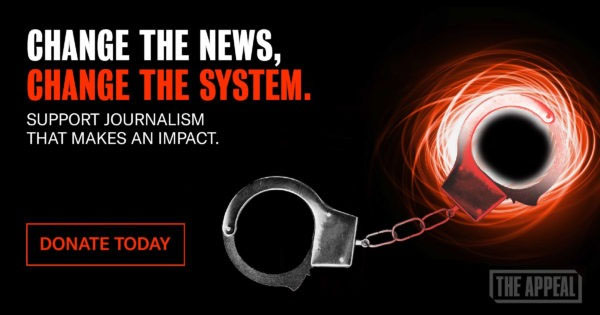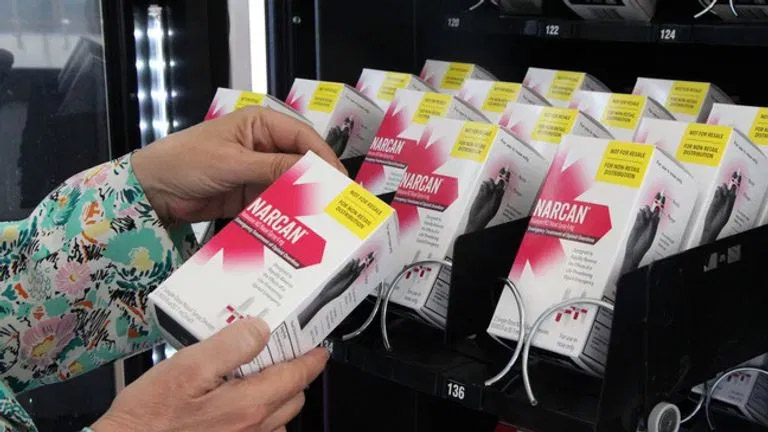
How harm reduction advocates are working to prevent fentanyl overdose deaths
August 2, 2024
LA County increased access to an opioid antidote 500% in 3 years. Is that why overdose deaths leveled off?
August 4, 2024In May, the federal government and Shelby County, Tennessee, reached a landmark settlement stopping the local prosecutor from enforcing a law that discriminates against people living with HIV.
In May, the U.S. Department of Justice (DOJ) reached a landmark deal with the prosecutor for Shelby County, Tennessee, which will stop that office from enforcing a law that the federal government says discriminates against people living with HIV.
The county and DOJ agreed to resolve claims that the county violated the Americans with Disabilities Act (ADA) by prosecuting the state’s “aggravated prostitution” statute, which makes it a felony for people living with the virus to engage in sex work—while engaging in sex work without the virus is ordinarily a misdemeanor in the state. But, in response, state lawmakers are already attacking the deal and people living with the virus.
At the time of the announcement, the Center for HIV Law and Policy touted the deal as “a historic milestone in the fight to end the criminalization of sex workers and all people living with HIV” as well as the first time the ADA has been used “to successfully counter HIV criminalization laws.”
The settlement came after the DOJ released a letter late last year warning Shelby County and the state that the law violated the ADA by specifically targeting people living with HIV. The DOJ eventually sued the state of Tennessee and the Tennessee Bureau of Investigation (TBI) over the law in February. In May, Shelby County agreed to stop prosecuting aggravated prostitution charges, along with enacting other reforms aimed at people who had already been arrested, prosecuted, and forced to register as “violent sex offenders” in the state, which the law required until very recently. A law that removed aggravated prostitution as a registerable sexual offense or violent sexual offense went into effect at the beginning of July.
Namely, the deal will allow people previously convicted under the law to petition to have their convictions vacated.
“Living with HIV is not a crime, and the continued enforcement of laws that criminalize a person based on their HIV status, regardless of risk, perpetuate bias, stereotypes, and ignorance about HIV,” Assistant Attorney General Kristen Clarke of the Justice Department’s Civil Rights Division said at the time of the settlement. The DOJ declined to comment further on the settlement or the ongoing litigation with the state and TBI.

Unlike Shelby County, the state and TBI have resisted the DOJ’s claims that the statute violates the ADA.
In an April motion to dismiss, the state and TBI argued that the DOJ has no standing to sue under Title II of the ADA.
In response to the DOJ’s settlement with Shelby County, State Senator Brent Taylor argued in an early June letter to Tennessee Attorney General Jonathan Skrmetti that “we have an HIV problem and [Shelby County] District Attorney Steve Mulroy refuses to enforce the law that will help address the issue.” In the letter, Taylor also questioned whether the county’s deal was legally binding because it was reached outside the DOJ’s lawsuit against the state.
In response, Mulroy said in a press release his office made the agreement to avoid a legal fight with the DOJ, adding that the office has “other means to go after prostitution.” The statement also highlighted that Tennessee has a separate statute that makes it illegal to expose someone to HIV in the state without disclosing their status.
But public health experts have long argued that rhetoric like Taylor’s—and HIV criminalization laws broadly—increases stigma and discourages testing, treatment, and prevention efforts that would actually help the fight against HIV. And experts say rhetoric like Taylor’s remains a significant barrier to abolishing the dozen-plus HIV criminalization laws that are still in place around the country.
“We know that these laws don’t work,” Sean McCormick, another CHLP staff attorney, told The Appeal. “And increasing criminalization is not going to do anything to reduce [the spread of HIV]. We know about community-based testing and treatment as well as focusing efforts on the communities most affected—Black Memphis residents, especially Black women—who have been targeted by this aggravated prostitution offense.”
Helping these communities by using the ADA could significantly impact the country.
“I think this is opening the door to being able to use the ADA in a broader way,” CHLP Staff Attorney Jada Hicks told The Appeal. “So what other applications can we use the ADA for—not just in reference to sex work, but like HIV criminalization in general.”




